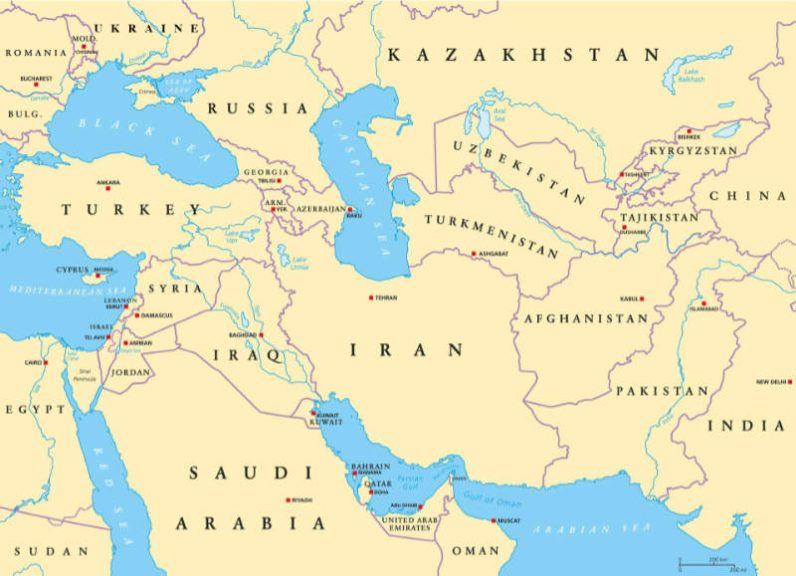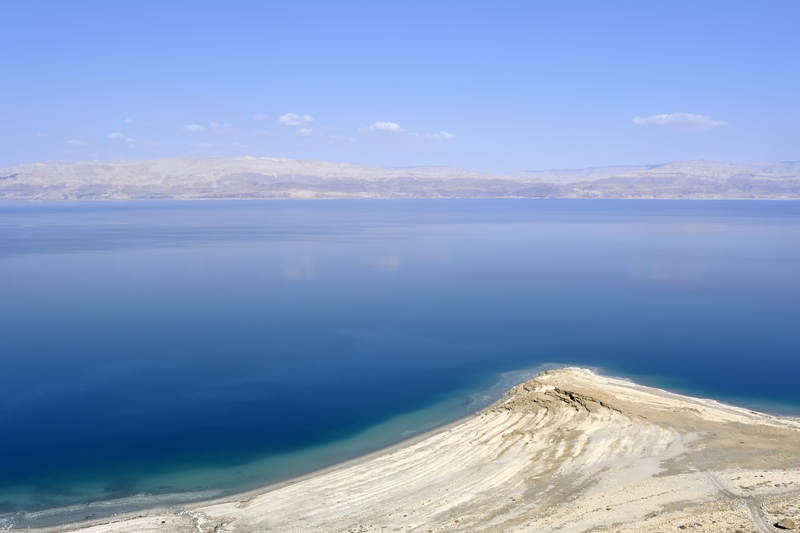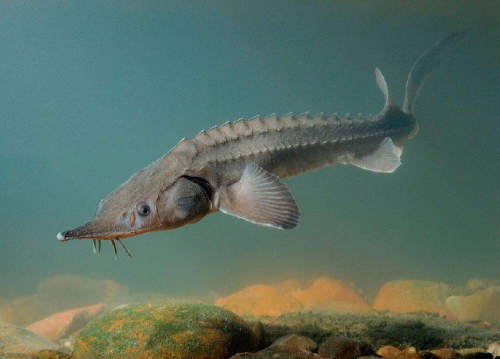Russia has just hosted the fourth meeting of the Interdepartmental Commission on Caspian Cooperation, which was chaired by Russian Foreign Minister Sergey Lavrov. Opening the meeting of the Commission, Lavrov made numerous Caspian development statements, of interest to all those involved in the region. We provide his comments and other recent Caspian-related news as follows:
“Dear Colleagues,
Strengthening cooperation in the Caspian Sea area is our priority. This is clearly stated in the Foreign Policy Concept of the Russian Federation, approved by President Vladimir Putin in March 2023. We consistently proceed from the fact that the five Caspian littoral states have exclusive competence in resolving issues related to the Caspian Sea. Although there are more and more people wishing to meddle in these issues. Here we must clearly ensure the implementation of the relevant agreements that were reached as part of the work on the Convention on the Legal Status of the Caspian Sea (note: the Caspian littoral States are Azerbaijan, Iran, Kazakhstan, Russia and Turkmenistan).

It is obvious that greater interaction between the five parties to this convention will help develop a framework for broader economic cooperation in Eurasia, something President Vladimir Putin referred to as the Greater Eurasian Partnership, as well as build equal and indivisible security on the continent we share. Given its geopolitical and geostrategic importance, the Caspian region should be an integral part of this security system.
The five Caspian states have held several important events since our last meeting.
On February 17-18, Tehran hosted the 3rd Caspian Economic Forum (CEF). Deputy Prime Minister Alexey Overchuk led the Russian delegation attending the meeting.
The conference featured more than a dozen thematic roundtables where participants spoke in favour of strengthening joint research, including the study of the causes of Caspian shoaling. They noted the high level of cooperation between the littoral states in oil and gas as well as in power generation, including green energy projects. They also supported further expanding cooperation in transport and building transport and logistics infrastructure. We agreed to hold ministerial meetings on transport and on economic issues before the end of the year.
We believe that the Commission should continue to focus on the areas identified as the five states’ priorities. Its mission is to facilitate the implementation of the decisions adopted at the 3rd Caspian Economic Forum.
On May 5-7, the 10th meeting of the High-Level Working Group on Caspian Sea Issues took place in Moscow. Among other Caspian-related issues they reviewed, representatives of Russia, Azerbaijan, Iran, Kazakhstan and Turkmenistan discussed methods for drawing straight baselines in the Caspian Sea. This is an important issue that needs to be addressed to accelerate and finalise the process of enacting the Convention on the Legal Status of the Caspian Sea.
The participants also reviewed the preparations for the next meeting of foreign ministers to be held in Ashgabat this year.
The littoral states continued the well-established practice of holding roundtables dedicated to Caspian issues on the sidelines of major international events. On May 14 this year, Rossotrudnichestvo and the Russian Foreign Ministry organised a meeting during the 16th International Economic Forum Russia – Islamic World: KazanForum. The discussion, Caspian cooperation: Development of twinning relations, focused on interacting at the level of cities and municipalities. On May 16, the Russian Ministry of Transport organised a session on transport cooperation between the Caspian littoral states.
The Defence Ministry’s Navigation and Oceanography Department is currently holding the Second Caspian Hydrographic Conference dedicated to hydrographic support of navigation in the Caspian Sea in Kaspiysk (Dagestan). The conference brought together representatives from the five states’ defence ministries.
The Russian Ministry of Natural Resources and Environment will hold a roundtable on the sidelines of the 11th Nevsky International Ecological Congress in St Petersburg to consider ways to intensify the activities of respective agencies in the five states to address the Caspian Sea’s environmental issues, above all, its continuing shoaling.”
Caspian Shoaling

The Caspian Sea faces serious problems in the coming years with an expected reduction in water volumes, which Lavrov referred to as ‘shoaling’. Igor Shumakov, the head of the Russian Federal Service for Hydrometeorology and Environmental Monitoring (Roshydromet), has stated that “the predictions, based on simulations of an intergovernmental group of experts for climate change, show that global climate change tendencies will persist. It means that natural environmental changes will be happening in the Caspian region over the coming 10-15 years amid rising air temperatures, decreasing river outflow and, accordingly, further reduction of the level of the Caspian Sea.
Researchers registered an increase in water temperatures and an increase in evaporation from the water surface of the Caspian Sea in the past few years. We link it primarily to regional climate changes. The low water level in the Caspian Sea undoubtedly negatively influences the socioeconomic development of all Caspian littoral states. The shallowing of the Caspian Sea is accompanied by worsening conditions for navigation, oil extraction, reduction of biodiversity and fish catch.”
Denis Afanasyev, deputy governor and chairman of the government of the Astrakhan region, said, “The fall of the level of the Caspian Sea is becoming an increasingly serious problem to all Caspian littoral states. He stated that “Initially, the falling water levels in the Caspian Sea were not high, but it became obvious after 2023 that the highest fall level since 1977 had been reached. Further decline is predicted. A fall and a level of minus 29.3 metres according to the Baltic altitude system are possible in 2025 alone.”
Afanasyev said it is necessary to take a range of adaptation measures in the period of further decrease of the level of the Caspian Sea. He noted the importance of active work of all five Caspian littoral states and implementation of measures to preserve the Caspian Sea.
“These are natural processes, which we currently cannot influence. We can only take the corresponding adaptation measures. Or suggest and implement events reducing irreversible water loss, replenishing the outflow from the rivers that run into the Caspian Sea. And we have worded and proposed these measures at the bilateral Russia-Azerbaijan commission.”
Fishing

The Russian Federal Agency for Fisheries (Rosrybolovstvo) has also proposed that the Caspian littoral states extend the commercial ban on sturgeon fishing in the Caspian Sea. Ilya Shestakov, the Rosrybolovstvo head, said that “our primary objective is to maintain the commercial ban on sturgeon fishing, particularly concerning the Caspian’s most valuable stock.”
Sturgeon typically live for over 50 years and do not reach sexual maturity until 20 years of age. The ban was originally implemented by Caspian littoral states in 2013.
The Caspian Sea’s ichthyofauna comprises 150 species, 30 of which are commercially valuable, Shestakov said. “Unfortunately, regarding sturgeon species, some have already been lost, with only isolated specimens remaining that likely cannot be restored. This persists despite state efforts to replenish aquatic biological resources. This justifies maintaining the commercial fishing ban.”
Current Caspian sturgeon fishing is permitted solely for scientific research or reproduction purposes, he said. “Russia has conducted the largest sturgeon release volumes in recent years. Our scientists completed molecular and genetic identification of all species. For Russian sturgeon specifically, 80% of current stocks originate from hatchery-released juveniles,” he said. “Essentially, discontinuing reproduction efforts would mean losing even our remaining sturgeon populations.”
Shestakov confirmed that per agreements within the Commission for Conservation and Rational Use of Caspian Aquatic Biological Resources, the next marine sturgeon survey will occur by August 2027. “This will be synchronized temporally and crucially, conducted using standardized methodology,” he said.
Shestakov supports continuing collaborative efforts in sturgeon reproduction, juvenile release and fisheries protection. “Poaching exists, but we possess all necessary means to strengthen countermeasures. This remains a top priority,” he said.
Addressing forum concerns about Caspian Sea shallowing and warming, Shestakov said, “While weather lies beyond our control, we can mitigate other factors limiting aquatic resource restoration.”
The Commission for the Conservation and Rational Use of Aquatic Biological Resources of the Caspian Sea and the Management of Their Shared Stocks was established under an agreement signed in Astrakhan in September 2014 by representatives of all Caspian littoral states. In spring 2016, the document was ratified by all participating countries and entered into force. The agreement provides for the commission’s authority to adopt decisions that are binding on the member states. The commission’s first session was held in Baku in late November 2017.
Russia banned commercial beluga fishing in the Volga-Caspian basin in 2000, with sturgeon and stellate sturgeon prohibitions following in 2005.
The Caspian maintains the world’s richest sturgeon biodiversity. Peak catches reached 39,400 tonnes in the early 20th century and 27,400 tonnes by the late 1970s, before sharp declines post-1991.
Further Reading

 Русский
Русский














